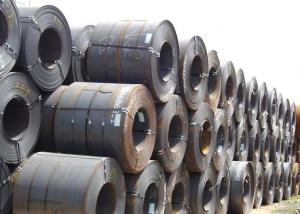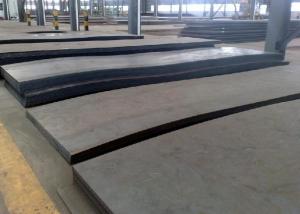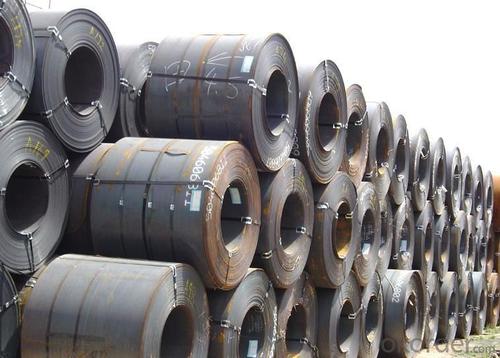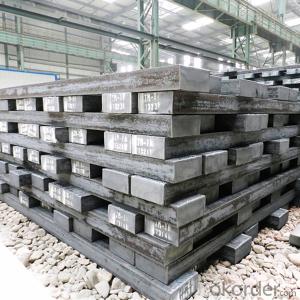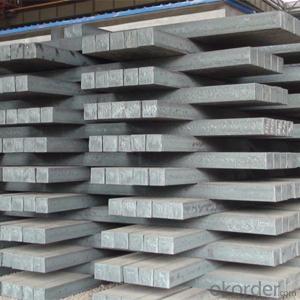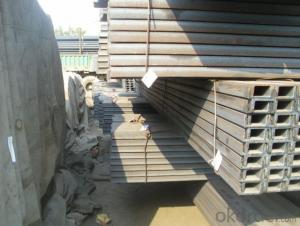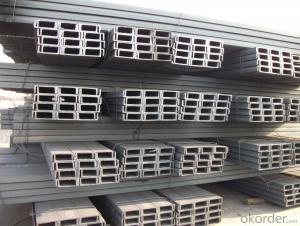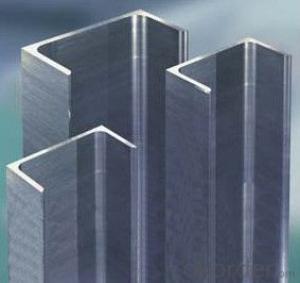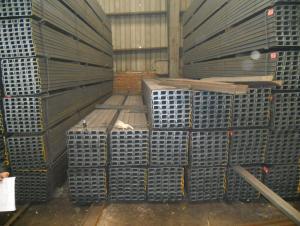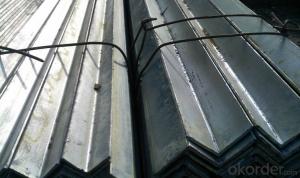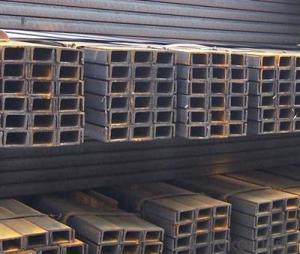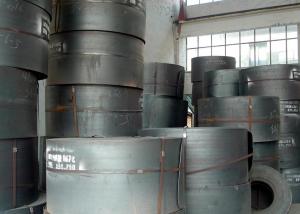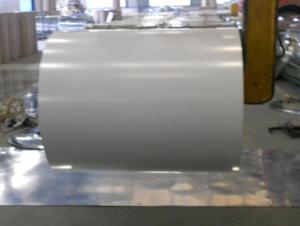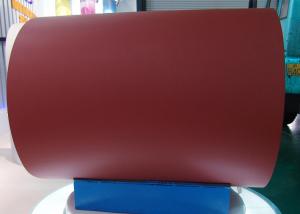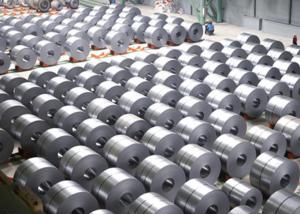Hot Rolled Alloy Channel Steel GB Standard
- Loading Port:
- China Main Port
- Payment Terms:
- TT or L/C
- Min Order Qty:
- 50 tons m.t.
- Supply Capability:
- 50000 Metric Tons Per Month m.t./month
OKorder Service Pledge
OKorder Financial Service
You Might Also Like
Specification Of Hot Rolled Alloy Channel Steel GB Standard
|
|
Thickness |
Width |
Length |
Coil Inside Diameter |
|
HOT ROLLED STEEL COIL |
1.50~25.0mm |
600~2000mm |
|
762mm |
|
HOT ROLLED STEEL STRIP |
1.50~20.0mm |
30~720mm |
|
762mm |
|
HOT ROLLED STEEL PLATE |
6.00~700mm |
500~4500mm |
4000~18000mm |
|
|
HOT ROLLED STEEL SHEET |
1.20~25.0mm |
50~2000mm |
0~18000mm |
|
|
HOT ROLLED STEEL CHEQUERED |
1.40~10.0mm |
900~1500mm |
0~18000mm |
|
Standard &Grade Of Hot Rolled Alloy Channel Steel GB Standard
|
|
JIS |
ASTM |
SAE |
EN |
|
Commercial Quality |
G3131 SPHC |
A569 A635 A659 A1011 CS Type A, B, C |
1006~1025 |
10111 DD11 |
|
Drawing Quality |
G3131 SPHD |
|
1006~1010 |
10111 DD12 |
|
Deep Drawing Quality |
G3131 SPHE |
A622 A1011 DS Type A, B |
1006~1010 |
10111 DD13 DD14 |
|
General Structure (T.S.<490N/mm2) |
G3101 SS330 SS400 G3106 SM400A G3132 SPHT1 SPHT2 SPHT3 |
A36 A283 GR.C A570 GR.30~40 A1001 SS GR.30~40 |
1010~1025 |
|
|
General Structure (T.S.≥490N/mm2) |
G3101 SS490 G3106 SM490A SM490YA G3132 SPH4 |
A570 GR.45~50 A607 GR.45~70 A1011 SS GR.45,50 A1011 HSLAS GR.45~70 |
J1392 050X |
|
Definition Of Hot Rolled Alloy Channel Steel GB Standard
Rolled to its final dimensions while it’s hot enough to scale, our hot-rolled steel is an amalgamation of the various qualities of steel. It can be in the form of plates, sheets and coils. Our Hot-Rolled Steel Sheets and Coils are applied to a wide range of uses such as automobile, electrical appliance, machinery manufacturing, container manufacturing, shipbuilding, bridge, pipeline, and receive high acclaim from our customers for its excellent quality.
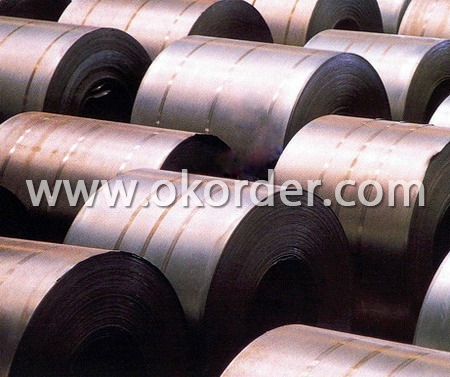
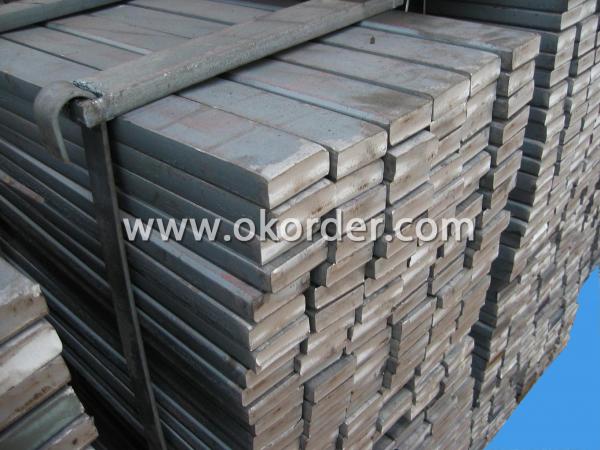
Usage/Application Of Hot Rolled Alloy Channel Steel GB Standard
As raw material for:
Container &Pipe Production
Carbon Structural Steel
Low Alloy Steel
High Quality Carbon Structural Steel
Atmospheric Corrosion Resistant Steel
Low Carbon Steel (Commercial Quality, Drawing Quality, Deep Drawing Quality)
Packaging & Delivery Of Hot Rolled Alloy Channel Steel GB Standard
The packing of coils consists of anti-damp paper, PVC film, hardboard paper, steel box, strapped with steel strips, fitted with locks and edge protectors and guarantees the optimal condition of the delivered goods. Each coil can be additionally fitted with wooden/steel skids(eye to the side) or wooden pallets(eye to the sky).
Bulk shipment packed with steel belt.
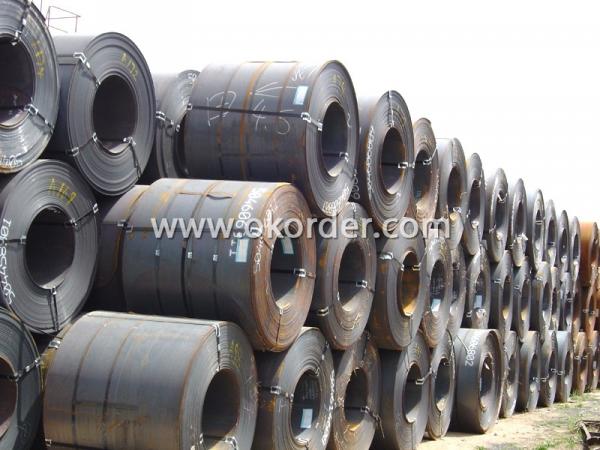
- Q: What are the different types of steel wires and their applications in the telecommunications industry?
- There are several types of steel wires used in the telecommunications industry. Some common ones include galvanized steel wires, aluminum clad steel wires, and stainless steel wires. Galvanized steel wires are coated with a layer of zinc, which provides corrosion resistance. They are commonly used for overhead transmission lines and communication cables. Aluminum clad steel wires are made by covering a steel core with a layer of aluminum. These wires combine the strength of steel with the light weight and conductivity of aluminum. They are often used in the construction of overhead power lines and telecommunication cables. Stainless steel wires are known for their high strength and resistance to corrosion. They are used in the telecommunications industry for applications that require durability and reliability, such as guy wires for cell towers and suspension cables for overhead lines. Overall, steel wires play a crucial role in telecommunication infrastructure, providing support, strength, and conductivity for various applications in the industry.
- Q: How is steel sheet metal fabricated?
- Steel sheet metal is fabricated through a process called sheet metal forming, which involves cutting, bending, and shaping steel sheets into desired shapes and sizes using various tools and techniques like shearing, punching, welding, and folding.
- Q: How do steel products contribute to the transportation industry?
- Steel products play a crucial role in the transportation industry by providing strength, durability, and safety to various components and structures. Steel is extensively used in the manufacturing of vehicles, such as cars, trucks, trains, ships, and airplanes, due to its high tensile strength and ability to withstand extreme conditions. It is used in the construction of frames, chassis, body panels, and engine components, ensuring the structural integrity and longevity of these vehicles. Additionally, steel is utilized in infrastructure projects like bridges, tunnels, and railway tracks, enhancing the reliability and safety of transportation systems. Overall, steel products are vital for the transportation industry as they contribute to the efficiency, performance, and safety of various modes of transportation.
- Q: How is steel pipe coated for underground gas pipelines?
- Steel pipe for underground gas pipelines is typically coated using a three-layer coating system. The first layer is a fusion-bonded epoxy (FBE) primer that provides corrosion protection. The second layer is an adhesive that helps bond the FBE to the pipe. Finally, the third layer is a polyethylene or polypropylene coating that acts as a protective outer layer. This coating process ensures the steel pipe is well-protected against corrosion and other potential damages in underground environments.
- Q: How are steel products used in the construction of residential buildings and housing complexes?
- Steel products are extensively used in the construction of residential buildings and housing complexes due to their strength, durability, and versatility. They are commonly employed in the structural framework, such as beams, columns, and trusses, providing a sturdy and stable support system. Steel is also used for reinforcing concrete, increasing the strength and resistance of the building against various forces. Additionally, steel is utilized in the construction of roofing systems, wall panels, stairs, and balconies, offering aesthetic appeal and long-lasting performance. Overall, steel products play a crucial role in ensuring the safety, stability, and longevity of residential buildings and housing complexes.
- Q: How are steel products used in the construction of libraries and educational centers?
- Steel products are commonly used in the construction of libraries and educational centers for various purposes. Steel beams and columns are used to provide structural support, ensuring the durability and stability of the building. Steel frames are also used for walls and roofs, allowing for flexible and efficient design options. Additionally, steel is used for doors, windows, and other architectural elements, providing security and aesthetic appeal. Overall, steel products play a crucial role in constructing safe, functional, and aesthetically pleasing libraries and educational centers.
- Q: How is steel billet produced?
- Steel billet is produced through a process called continuous casting, where molten steel is poured into a water-cooled mold to form a solid rectangular shape. The billet is then further processed through heating, rolling, and shaping techniques to achieve the desired dimensions and properties.
- Q: How is steel sheet metal formed into automotive body panels?
- Steel sheet metal is formed into automotive body panels through a process called stamping or pressing. In this process, the steel sheet is placed between two dies, one of which has the desired shape of the body panel. The top die is then pressed onto the sheet metal with high force, causing it to bend and take the shape of the die. This process is repeated multiple times, with different dies and angles, until the desired shape and structure of the body panel is achieved.
- Q: How do steel products contribute to the recreational and sports industry?
- Steel products contribute to the recreational and sports industry in several ways. Firstly, steel is used to manufacture equipment such as bicycles, golf clubs, tennis rackets, and baseball bats, providing athletes with durable and high-performance tools. Additionally, steel is commonly used in the construction of sports facilities, such as stadiums and arenas, ensuring their structural integrity and safety. Furthermore, steel plays a vital role in the manufacturing of gym and fitness equipment, allowing people to engage in various physical activities and maintain a healthy lifestyle. Overall, steel products provide the necessary strength, durability, and safety required for recreational and sports activities, enhancing the overall experience for athletes and enthusiasts.
- Q: How is steel plate formed into complex shapes?
- Steel plate is formed into complex shapes through a process called fabrication. This involves various techniques such as cutting, bending, and welding, where the steel plate is carefully manipulated to achieve the desired shape. Advanced machinery and skilled craftsmen are often involved in this process to ensure precision and accuracy in forming the complex shapes.
1. Manufacturer Overview
| Location | Hebei, China |
| Year Established | 2002 |
| Annual Output Value | |
| Main Markets | North America Eastern Asia Africa Eastern Europe Southeast Asia Western Europe |
| Company Certifications | ISO 9001;ISO 14001 |
2. Manufacturer Certificates
| a) Certification Name | |
| Range | |
| Reference | |
| Validity Period |
3. Manufacturer Capability
| a) Trade Capacity | |
| Nearest Port | Tianjin; Qingdao |
| Export Percentage | 50% |
| No.of Employees in Trade Department | 50 People |
| Language Spoken: | English; Chinese |
| b) Factory Information | |
| Factory Size: | 30000 square meters |
| No. of Production Lines | Above 10 |
| Contract Manufacturing | OEM Service Offered |
| Product Price Range | Average |
Send your message to us
Hot Rolled Alloy Channel Steel GB Standard
- Loading Port:
- China Main Port
- Payment Terms:
- TT or L/C
- Min Order Qty:
- 50 tons m.t.
- Supply Capability:
- 50000 Metric Tons Per Month m.t./month
OKorder Service Pledge
OKorder Financial Service
Similar products
Hot products
Hot Searches
Related keywords
